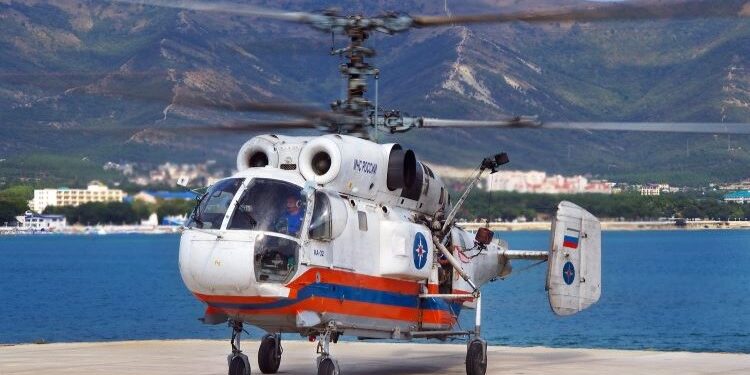The Diplomat
The Sumar Parliamentary Group has proposed a “partial” lifting of sanctions on Russia in order to guarantee the use of Russian Kamov helicopters in forest fire extinguishing efforts in Spain.
This appears in a non-law Proposal presented for debate in the Congressional Transportation Commission and in a written parliamentary question, both from Sumar. Regarding the latter, the Executive simply recalled that this decision “does not correspond to the Government, but to the European Union.”
The motion urges the Government to “partially” lift the sanctions on Russia so that the fleet of Kamov Ka32-11BC helicopters, of Russian origin and used especially in the fight against forest fires, can continue operating in Spain. These devices, according to Sumar, guarantee “extreme” effectiveness, but European sanctions against Russia have “impossible” the arrival of spare parts and “approvals”, which affects their capacity.
Sumar recalls that, in 2023, only three of the eight helicopters contracted by Spain were available and that, by 2024, the Ministry of Ecological Transition itself has admitted that there will not be any available. An attempt has been made to replace the Russian devices with the Superpuma model, but “neither its availability nor its effectiveness are rivals for the great anti-fire tool that the Kamovs represent,” assures the group led by vice president Yolanda Díaz.
The motion also recalls that several European countries have already begun to exert “pressure” so that these sanctions can be lifted for the sake of national security. For this reason, Sumar asks the Government to adopt “timely” measures within the EU framework to “partially” lift the sanctions related to the maintenance and operation of the Kamov helicopters. Likewise, it urges going to the international market to find alternatives, in the short, medium and long term, to Kamov helicopters and to study the “necessary” steps to end external dependence in firefighting, especially during peak seasons.
This same issue was addressed by Sumar on May 10 through a written parliamentary question in which it recalled that Kamov helicopters have the capacity to “release 5,000 liters of water in a single trip” and, in fact, “people who deal with the fire on land, when they see it appear, they consider the fire extinguished due to its great capacity and effectiveness.”
“However, an important part of these ships will not be operational for the summer campaign since the sanctions imposed on Russia as a result of the war in Ukraine prevent the corresponding financial amount from being paid so that the Russian manufacturer of the devices certify that they are safe, as required by current regulations,” continued Sumar, who therefore asked the Government if it intends “to grant an exemption for payments, certainly minor, to the Russian manufacturer of the KA-32 so that they can be operational this summer in our country and thus contribute to providing the means to preserve our natural heritage, increasingly threatened by fires.”
In its response, dated June 18, the Government acknowledged that “the availability of Kamov helicopters has been affected by Russia’s invasion of Ukraine and the economic sanctions imposed by the European Union” and that, “due to the current sanctions”, the necessary spare parts for its maintenance cannot be acquired nor the Russian mechanics and technicians authorized to carry out the necessary inspections sent to Europe, a task that, “by contract, must be carried out by Russian personnel.”
“Regarding granting an exemption for payments, it should be noted that this exemption does not correspond to the Government but to the European Union,” warned the Government, which also assured that the Ministry for the Ecological Transition and the Democratic Challenge, in coordination with the autonomous communities, is “studying the availability in the international market of other aerial means that could replace the Kamov Ka32-11BC type heavy bomber helicopters.”







